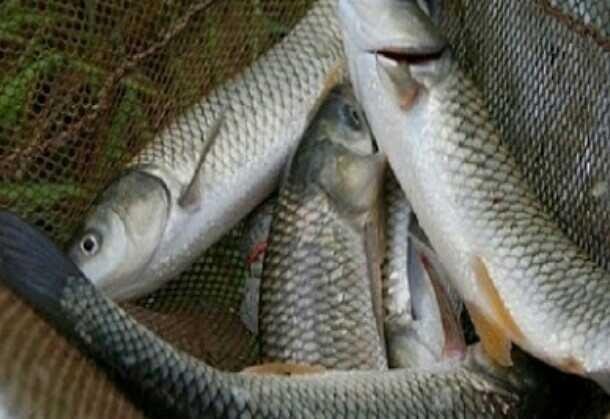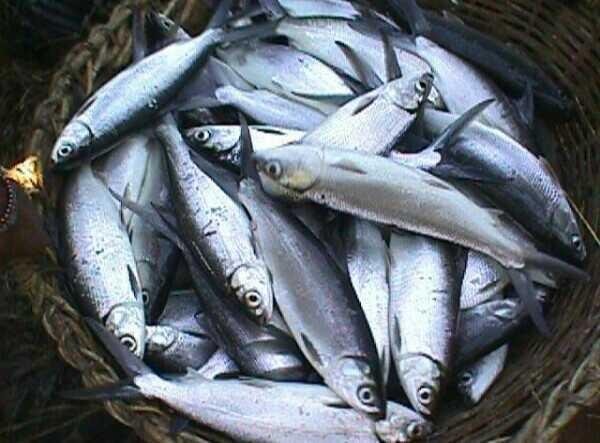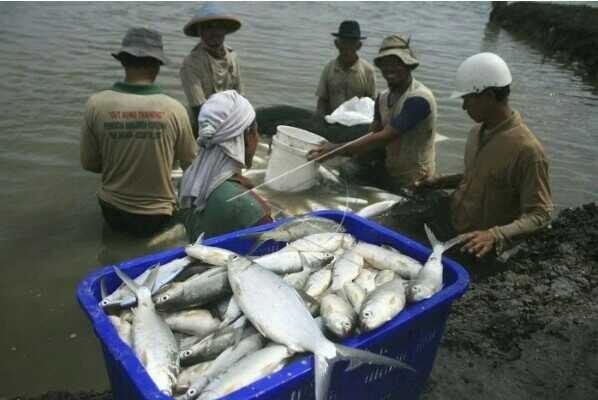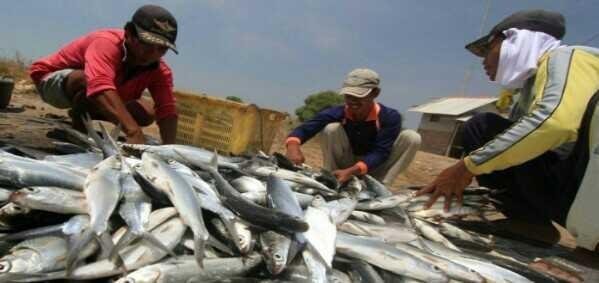Maintenance techniques Milkfish in fresh water is no different from maintenance in brackish water (ponds). as an euryhaline fish (can adapt to a wide range of salinitas), milkfish can live well in fresh water. In fresh water, milkfish can be maintained in ponds, keramba, hampang and Floating Net Ponds.

A. Adaptation Nener (child of milkfish)
Nener, commonly produced in seawater systems from mains to nursery with a salinity range of 30-32 ppt (egg and larvae) and salinity of 10-20 ppt (young group). So, for milkfish can be maintained in fresh water, with water salinity 0-5 ppt then it is necessary to adapt. Because, the decreasing level of water salinitasi, then the rate of nener death (milkfish seeds). Basically, nener is very adaptable to fresh water, as long as water salinity reduction is not done abruptly, but it is done gradually. Decreased salinity of water ideally as from 30 ppt to reach 0 ppt for 3 days with decreased salinity of water 10 ppt per day.

To perform the process of adaptation of nener into fresh water, usually done in a tub with a capacity of 1000 nener / m2. Then gradually the process of decreasing the salinity of water is done by reducing the sea water in the tub by adding fresh water. Once it continues until nener can really adapt to fresh water as a whole. It is intended that nener is not stressed and dead.
B. Milkfish enlargement in the pond
If milkfish will be maintained in a pool of land, first the pond is prepared so that at the time of milkfish will be in stock, the pond is in good condition. Here are the steps in the enlargement of milkfish in the pond.
1. Pond preparation
The pond is dried for 3-7 days, its function is to kill pests and germs that are in the bottom of the pond. Pool basin should be strong, and make the water gate in the pool so that when the drying of the pond is easy to do. Hoe the bottom of the pond so that the soil at the bottom of the pond at the time of watering will quickly muddy.
Then sprinkle the bottom of the pond with lime in accordance with soil pH, lime filling function at the bottom of the pond is to raise the pH of the pool to 7.0 - 8.0 and serves as a prevention of disease attack on nener. Then sprinkle ponds with organic fertilizer with volume of 1 ton / hectare, plus Urea and TSP fertilizer with Urea volume of 150kg / hectare and TSP 75kg / hectare. After the fertilization process is complete, water the pond with a water height of 10 cm and leave for 3-4 days, it is intended that microorganisms grow on the bottom of the pond during the process of decomposition of organic fertilizer and artificial fertilizer earlier. On the 5th day of irrigation, the water in the pond is added up to reach a height of 40 cm
2. Seed distribution
The distribution of milkfish seed (nener) can be done after the pond diari with height of 40 cm, the distribution of seeds in the pond must be in accordance with the capacity of the pond, for nener of 3-5 cm long (young milkfish group), the pool contents of 3-5 per square meter. During the acclimatization process (nener adaptation of new ponds) in a new pond that lasts for 3-7 days, young milkfish does not require artificial feed, because the food is fulfilled from the provision of organic fertilizer and artificial fertilizer earlier. After 7 days of spreading, the pool water is added up to 1 meter height and new artificial feed (pellets) can be given.
3. Provision of Artificial Feed (pellets)
Artificial Feeding on cultivation of milkfish enlargement is done as much as 3 times daily with a volume of 50 kg / hectare / day or 3-5% weight of milkfish. The feeding is done in the morning at 07.00-08.00 with the content of 20% = 10kg / hectare, during the day at 11.00 - 12.00 with the content of 40% = 20kg / hectare, and the afternoon at 16.00 - 17.00 with the content of 40% = 20kg / hectares.
4. Harvesting

Milkfish can be harvested in accordance with the needs of consumers. For live bait milkfish can be harvested after the age of 4 months with the weight of 10-20 fish / kg. For milkfish consumption, milkfish can be harvested after milkfish aged 6 months with a weight of 3-4 3 kg milkfish / kg. And for super milkfish enlargement cultivation, long enlargement is done until milkfish aged 8-10 months weighing 1 - 2 head / kg.
